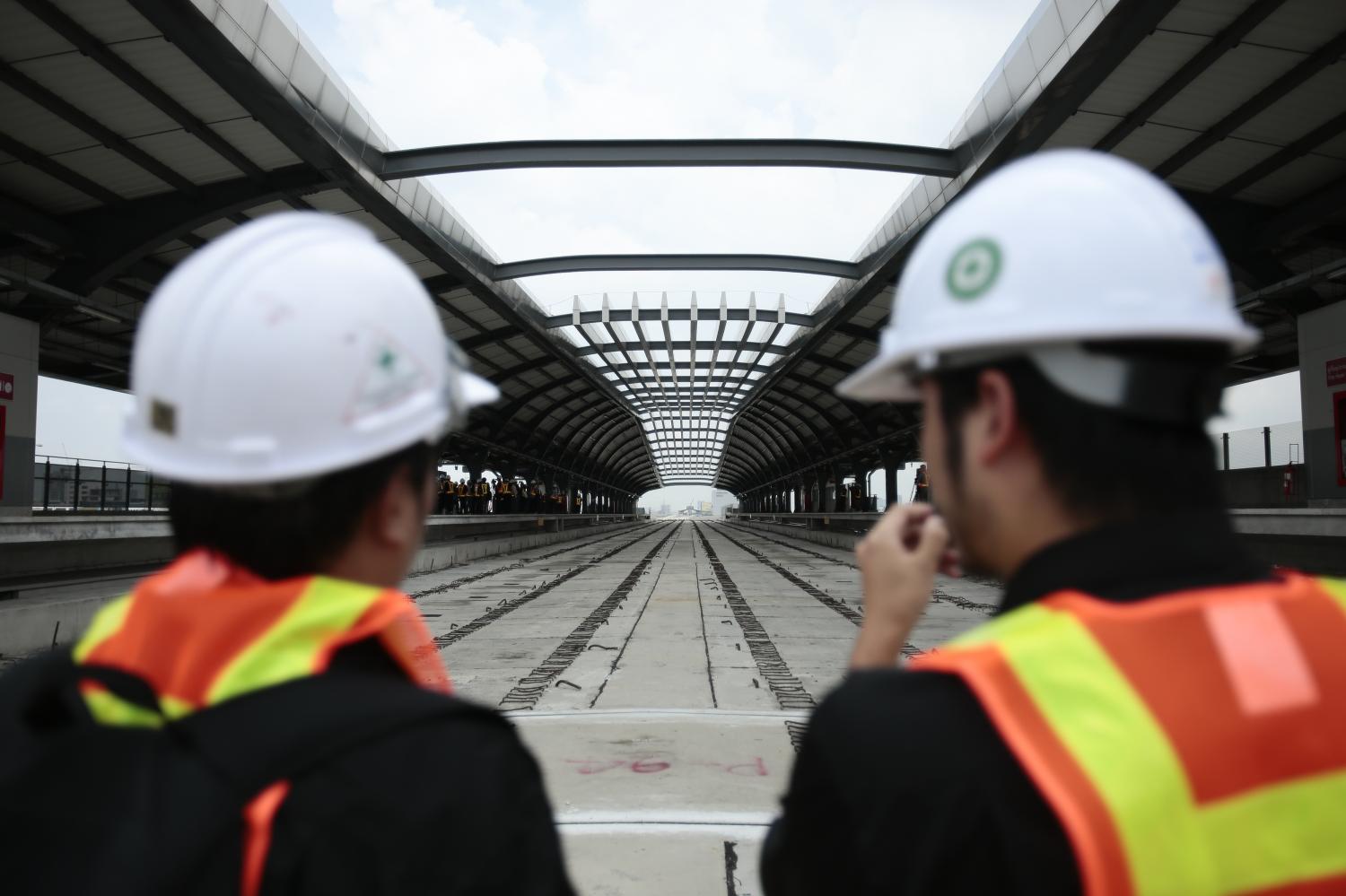
Thailand's rail sector is facing a skilled-labour shortfall of about 100,000 workers, with a likely impact on construction of new rail systems, says the Office of Transport and Traffic Policy and Planning (OTP).
Wijit Nimirtwanich, OTP's transport technical officer, said the government has to prepare for more manpower in the rail system, as the country is keen to develop high-speed and double-track railways.
"This industry needs a massive labour force in rail construction, maintenance and repair, while the government has to upgrade all railway systems across the country," Mr Wijit said. "With this problem, the Transport Ministry has to cooperate with the Industry Ministry and state educational institutions to produce skill-matched students to serve the current labour market."
He said the government has invested heavily in developing the country's transport system, including new roads and railways and upgraded airports and seaports.
"For 2019 alone, the government has allocated 1.7 trillion baht for 44 megaprojects, including the railway system," Mr Wijit said.
Development and improvement of the country's railway system have been sluggish for the past three decades, leading to a skilled-labour shortage.
Thailand has 4,000 kilometres of railways nationwide, up from 3,000km a year ago, due to the completion of double-track railway projects.
The government is developing a high-speed railway from Bangkok to Chiang Mai, Songkhla and Nong Khai at a length of 1,600-1,700km.
In addition, the Transport Ministry plans to propose seven double-track railway projects to the cabinet soon.
Panuwat Triyangkoonsri, inspector-general of the Industry Ministry, said the government aims to promote local companies to produce bogies and locomotives in order to reduce the cost of importing from overseas manufacturers.
"The rail industry will be a new opportunity for local companies to mobilise the country's economy and labour market," Mr Panuwat said.
Atsushi Terada, senior manager of Japan Management Association Consultants (JMAC), said development of Thailand's rail industry presents an opportunity for Japanese firms.
"Japan is interested in investing in many railway megaprojects in Thailand, but it's also concerned about the current labour shortage in the sector," Mr Terada said. "Both the public and private sectors should cooperate to prepare the urgent manpower to serve the rail industry."
In related news, the Industry and Transport ministries have teamed up with JMAC to hold an industrial showcase, Maintenance & Resilience Asia 2019. The event runs Oct 2-4 at Bitec.
The showcase will help the public and private sectors develop infrastructure and upgrade efficiency and performance levels to bring them close to par with Japan's transport system.
The event will welcome 120 companies from Japan, China, Singapore and Thailand to share experiences and take part in business matching.
